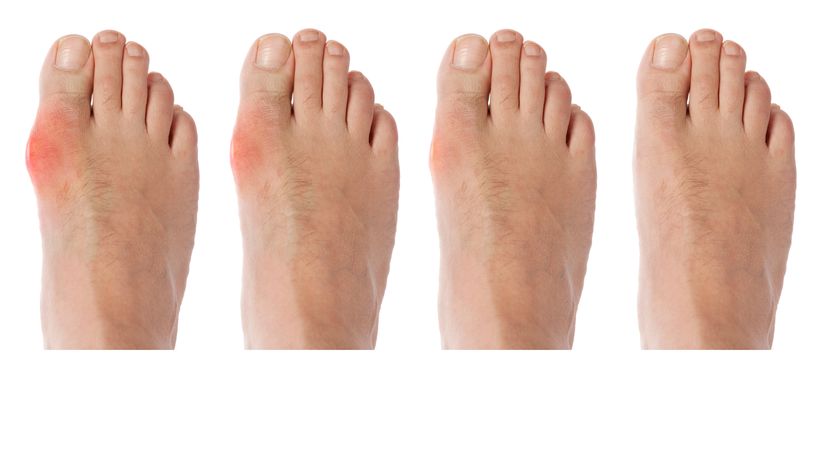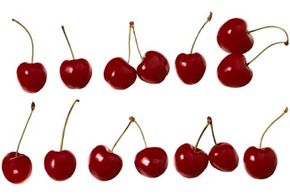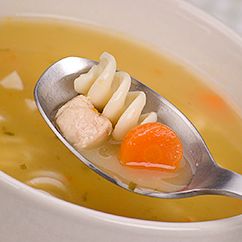
The word gout may make you think of kings and medieval history. But gout isn't a disease of the past. It's very much with us today. That's because gout is an inflammatory joint disease and a form of arthritis, not some mysterious illness of the rich and powerful.
Gout, which occurs in about five percent of people with arthritis, results from the buildup of uric acid in the blood. Uric acid is the result of the breakdown of waste substances, called purines, in the body. Usually it is dissolved in the blood, processed by the kidneys, and passed out of the body in the urine. But in some people there is an excess amount of uric acid, too much for the kidneys to eliminate quickly. When there is too much uric acid in the blood, it crystallizes and collects in the joint spaces, causing gout. Occasionally, these deposits become so large that they push against the skin in lumpy patches, called tophi, that can actually be seen.
Advertisement
A gout attack usually lasts five to ten days, and the most common area under siege is the big toe. In fact, 75 percent of people with gout will be affected in the big toe at some time. Gout in the big toe can become so painful that even a bedsheet draped over it will cause intolerable pain. Besides the big toe, gout may also develop in the ankles, heels, knees, wrists, fingers, and elbows.
Who Gets Gout?
Though anyone can get gout, it's primarily a man's disease. Women have the good fortune of being more efficient in the way they excrete uric acid. And children rarely get it.
Other risk factors include:
- Middle age. Men in their 40s and 50s are at greatest risk.
- Family history of gout. Up to 18 percent of all people with gout have family members with gout.
- Overweight. Excessive eating steps up the production of uric acid.
- Eating too many foods with purines, such as organ meats (liver, kidney, brains, sweetbreads), sardines, anchovies, meat extracts, dried peas, lentils, and legumes.
- An enzyme defect that prevents the breakdown of uric acid.
- Heavy alcohol use.
- Exposure to environmental lead.
- Using certain medications, including diuretics, salicylates, and levodopa.
- Taking niacin, a vitamin that's also called nicotinic acid.
Gout symptoms come on quickly the first time, often overnight. You can go to bed feeling fine and wake up later in excruciating pain. You may also experience joint swelling and shiny red or purple skin around the joint. If you're already predisposed to gout, you can trigger an episode by:
- Drinking too much alcohol
- Overeating, especially purine foods
- Having surgery
- Experiencing a sudden severe illness or trauma
- Going on a crash diet
- Injuring a joint
- Having chemotherapy
- Being under stress. The link isn't the stress itself, but the comfort eating or drinking that may accompany it.
If you have gout, professional medical treatment is required. There are several prescription medications that are very effective at eliminating excess uric acid. Untreated, gout may progress to serious joint damage and disability. Also, excess uric acid can cause kidney stones. For gout, though, there are several kitchen remedies that can be effective along with medication to alleviate the pain and symptoms. If you are looking for ways to prevent attacks of gout, check out the home remedy suggestions in the next section.This information is solely for informational purposes. IT IS NOT INTENDED TO PROVIDE MEDICAL ADVICE. Neither the Editors of Consumer Guide (R), Publications International, Ltd., the author nor publisher take responsibility for any possible consequences from any treatment, procedure, exercise, dietary modification, action or application of medication which results from reading or following the information contained in this information. The publication of this information does not constitute the practice of medicine, and this information does not replace the advice of your physician or other health care provider. Before undertaking any course of treatment, the reader must seek the advice of their physician or other health care provider.
Advertisement



